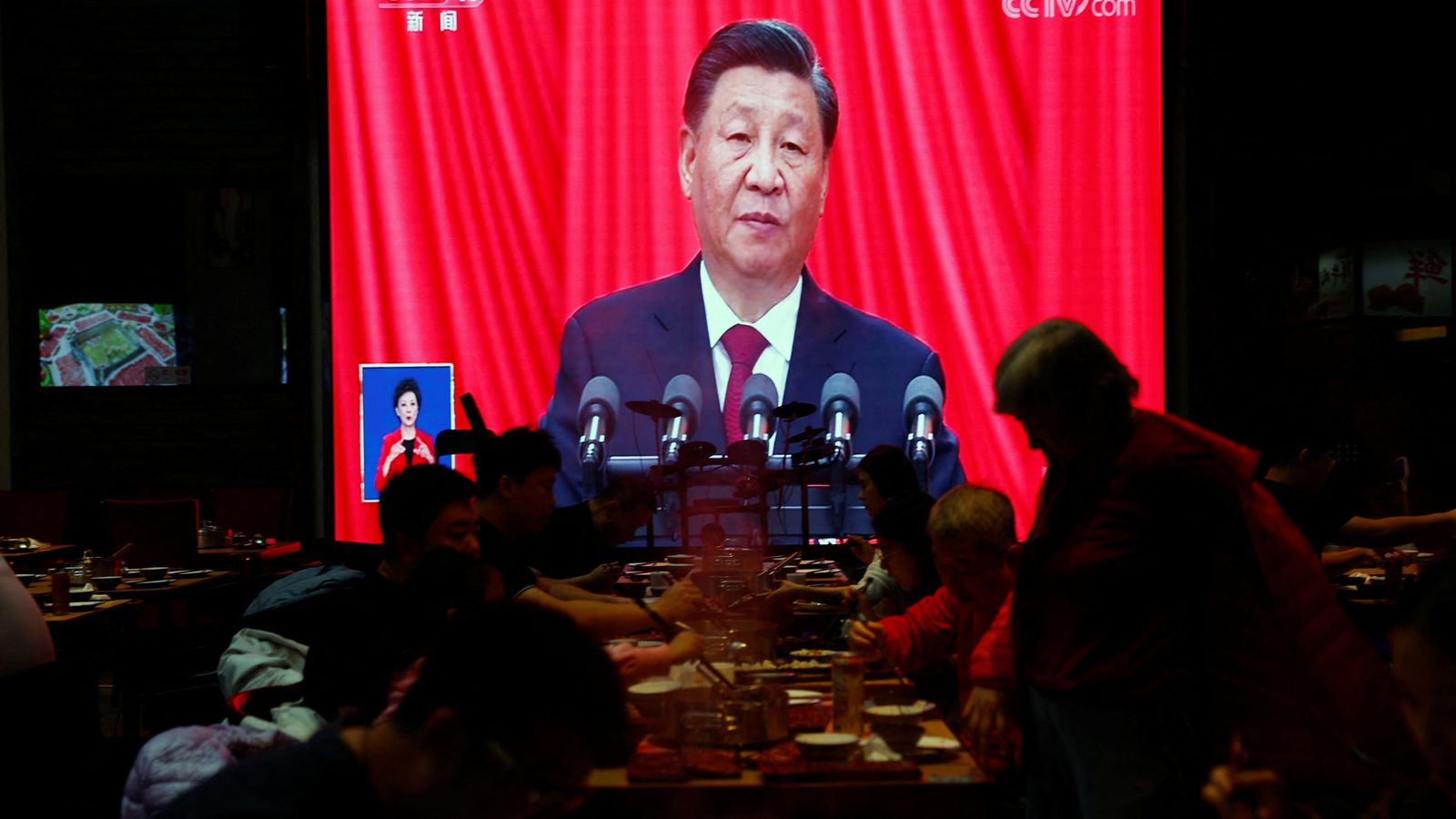When President Xi Jinping came to power 10 years ago, he had a very clear vision for China.
He would return the country to its former glory, he would be unapologetic about its ascendant place in the world order, and he would make it strong, rich and stable.
A lot of what he set out has indeed been realised. But while many at the time hoped this would be done via liberal reforms, it has – at least in part – been delivered via increased controls on his people.
Please use Chrome browser for a more accessible video player
This weekend, the 20th Congress of the Communist Party of China will conclude. It is a once-in-a-five-year event with the main aim of choosing the senior leaders who will take China forward to the next five years.
It is almost certain President Xi will be appointed to a precedent-breaking third term, meaning he could, in theory, become leader for life.
It means his vision for China and his way of implementing it increasingly has an air of permanence.
This matters hugely for those who have experienced the worst of the crackdowns.
Chinese consul-general defends actions after being seen pulling protester’s hair in Manchester
Police appeal for video footage after ‘absolutely unacceptable’ attack on protester at Chinese consulate in Manchester
The ‘green code’ app: How China’s Zero COVID policy is turning cities, parks, restaurants and shops into digitised fortresses
In Istanbul, many miles away from China, a young woman called Abudukel tearfully shows me pictures of her parents and her brother. She has no idea where they are.
She is a Uyghur Muslim from the far western Chinese province of Xinjiang.
Please use Chrome browser for a more accessible video player
Following a number of terror attacks early on in Xi’s leadership, he pursued a large-scale crackdown against the Uyghurs.
It’s estimated a million people have at some point been detained in camps, many have reportedly been tortured, an entire culture quashed.
Abudukel’s father was arrested in 2017, she says following pressure from the authorities to force her to return to China from her studies abroad.
A year or so later her brother and mother also disappeared. She is now utterly alone on the other side of the world, haunted by the last message her brother sent her.
“My brother’s voice message was, ‘sister, sister, are you there?'” she says, breaking down into tears.
“He might have left that message when they came and arrested my mother.
“It is evident that as long Xi Jinping stays one more day, we will continue to suffer more.
“Our homeland is like an open-air prison now, on the surface, it looks as if it is open, but everything is controlled.”
Please use Chrome browser for a more accessible video player
Read more:
Hong Kong pro-democracy protester on Chinese consulate attack in Manchester
Xi Jinping set to tighten grip on China
The Chinese government says the Uyghurs are in voluntary “re-education camps” and that this action was necessary to keep people safe.
But in the eyes of much of the world, this is one of the worst examples of President Xi’s China – a place where dissent is now almost impossible.
As well as journalists, lawyers and human rights groups having been largely silenced, people here know they are watched and monitored; their faces and voices tracked by technology, social media censored and sanitised.
An example of this came just last week. In a very rare and very brave act of protest, a lone man lit a small fire on a bridge in Beijing and hung banners calling President Xi a dictator.
But the impact was almost immediately stifled. China’s army of censors ensured the images were scrubbed from social media, those who shared them were banned from platforms.
Please use Chrome browser for a more accessible video player
For those outside China, they say this all leads to an incredible amount of self-censorship.
Ma Jian hasn’t been home for many years. He is an author and artist and his books have been banned in China.
He took part in the Tiananmen Square protests in 1989, and says the type of activism seen then just wouldn’t be possible now.
“Before, I was able to go back to China.” he explains, “Police would talk to me, follow me and tell me who I could meet and couldn’t meet. But now, they block me out of China totally.
“If anyone says one word about Hong Kong, Tibet, Xinjiang on WeChat or the pages of a manuscript – they will be disappeared or put in prison or silenced.
“So there is a huge fear now that envelopes society and this is the plan, this is what Xi Jinping had in mind when he took control. It’s his first step of the ‘China dream’. The first step is to control all thought.”
President Xi will close the Communist Party’s Congress this weekend, his rule almost certainly extended.
His China is challenging the world, challenging him is now harder than ever.









